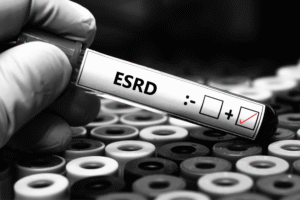Do you need to worry about delinquent Part B premiums? Most people have their Part B premium deducted from their Social Security or Railroad retirement benefit, so they do not have to worry about making payments on their own. However, if you do not receive these benefits when you enroll in Medicare, then you must ensure you pay your Part B premium payments on time. If you become delinquent on your payments, Medicare can cancel your Part B coverage. This blog will cover what happens if you fall behind on premium payments.
When will Medicare cancel my coverage if I am delinquent on my Part B premium?
If they do not withdraw your Part B premium from your Social Security or Railroad benefits, then Medicare will bill you for 3 months of premiums at a time. You must keep up with these premiums on your own or Medicare will terminate your coverage. We recommend that clients sign up for auto pay to have their Part B premium automatically deducted from their checking account.
See more on Paying Medicare Part B without Social Security Benefits here!
Medicare has a 90-day grace period if you fall behind on premiums. This gives 90 days to pay pay all delinquent Part B premiums without an interruption of coverage. You will receive a “Delinquent Bill” if you are nearing 90 days past due in payment. The bill will list the Termination Date to pay your premium and past due balance. If you do not pay, your Part B will terminate on that date. This is typically within 30 days from the date of the termination letter. You will need to pay all delinquent payments to maintain your Part B. If you do not, you will receive a termination notice informing you that you no longer have coverage.
What if they cancel my Part B for non-payment?
You can only sign up for Medicare during certain times of the year. If they cancelled your Medicare Part B, your next opportunity to re-enroll is during the General Enrollment Period (GEP). The GEP runs every year from January 1 to March 31, and your coverage will start the following month. When you re-enroll in Part B after cancellation, you must still pay any outstanding delinquency from before your coverage ended. This is true no matter how much time has passed between losing coverage and re-enrolling.
Will I have to pay a penalty if they cancel me for delinquent Part B premiums?
The short answer? You might. You must maintain Part B if you do not have other creditable coverage. If you do not maintain coverage, then Medicare will charge a 10% penalty for every 12 months you didn’t have coverage. If you re-enroll in Part B and have been without coverage for less than 12 months, you will not face a penalty.
Want more help navigating Medicare?
don’t do it alone! We are here to make it easier!

Let’s look at some different scenarios of delinquent Part B premiums:
Scenario 1: Richard’s Part B was effect on February 1, 2023. He does not receive Social Security, so his premium is not automatically deducted. Richard did not realize he had to pay his Part B premium on his own and missed making any of his payments. In early April, the last month of his 90-day grace period, he received his delinquent letter stating his Part B would terminate by April 30th if he does not pay his “Total Amount Due” by the “Due in Full Date”. See sample Medicare delinquent bill here. Richard must pay his February, March, and April, and May payments to avoid his Part B terminating at the end of April. Once he pays his balance, they will retroactively apply his coverage starting from February 1, 2023.
He will not face a penalty since he paid his Part B current before they cancelled his coverage.
Scenario 2: Penny’s Part B was cancelled at the end of November 2023 because she went 90 days without payment. Penny seldom visits the doctor so she didn’t know her Part B was cancelled until October 2024. Penny could not re-enroll in Part B until the General Enrollment period in 2025, from January 1stto March 31st. She re-enrolled in January 2025, with an effective date of February 1, 2025. She had to bring her account current and pay the 4 months of delinquent premiums from before she was cancelled. Her total months without creditable coverage are 13 months, from December 2023 to January 2025 She will have a lifetime penalty of 10% because she had one full 12-month period without coverage.
Penny has a 13-month gap in coverage from December 2023 to January 2025. She will have a 10% lifetime Part B penalty. Based on 2025: $185 x 10% = 18.50 + 185.00 = 203.50 premium. **NOTE: The 10% is based on the current year’s Part B premium, which changes yearly. This example shows 2025.
Scenario 3: Medicare cancelled Lynn’s Part B in June 2024 because he didn’t pay his premiums. He had to wait until the General Enrollment Period to re-enroll in Part B with a February 1, 2025 start date. He also had to bring his account current by paying the 4 months of delinquent premiums that were due before he was cancelled. However, unlike Penny, Lynn does not have a penalty because he did not go 12 months without coverage. He was only without coverage for 8 months, from June 2024 until February 2025
Lynn will have a gap in coverage from June until February but no lifetime penalty.







They say I didn’t pay my bill but I show where I did. So I am current on my payments but have no insurance so do I keep paying until the new enrollment time?
Did they say you didn’t pay your Part B bill? Or did you have a Medicare Supplement or other plan that you didn’t pay? If you didn’t pay your Part B bill and they cancelled you, then you will need to wait until the General Election Period to enroll again in January.
If you didn’t pay your Medicare Advantage or Part D plan, then you can enroll again during the Annual Election Period (10/15 to 12/7) for a January start date.
If you had a Medicare Supplement and they cancelled you for non-payment, then you can technically enroll in a supplement anytime, but will likely have to go through underwriting this time. Call the office here and we can help you figure out which scenario you fall under 480-821-9188.
I haven’t been able to pay my Part B premium for lover a year. Can I pay $1,000 towards it and start again
Hi Tom… The government would’ve cancelled your Part B after 3 months of missed payments so you shouldn’t be behind by a whole year. You should only be behind by approx. 3 months if they cancelled it right after 90 days. The Part B premium for 2025 was $185 per month. To get your part B reinstated after it is cancelled for delinquency, you need to pay the missing premiums. So you should be able to catch up with a $1,000 payment because it should’ve cancelled after only 3 missed payments. Your opportunity to enroll in Part B after you lost it is only from January to March each year during the General Election Period. If you miss this window, you will need to wait a year until it opens back up. So your opportunity is next month!
If you want to call the office, we can help you look up your Medicare and see if it is in fact cancelled and when. Then, once your Part B is back we can help you find a Medicare Advantage giveback plan that does help pay your Part B. Our number here is 480-821-9188. I hope this helps!
Some Medicare Advantage plans pay Part B premiums. I am over a year behind on my Part B payments. Can I enroll in MA and only pay the difference
Hi Tom… The government would’ve cancelled your Part B after 3 months of missed payments so you shouldn’t be behind by a whole year. You should only be behind by approx. 3 months if they cancelled it right after 90 days. The Part B premium for 2025 was $185 per month. To get your part B reinstated after it is cancelled for delinquency, you need to pay the missing premiums. So you should be able to catch up with a $1,000 payment because it should’ve cancelled after only 3 missed payments. Your opportunity to enroll in Part B after you lost it is only from January to March each year during the General Election Period. If you miss this window, you will need to wait a year until it opens back up. So your opportunity is next month!
If you want to call the office, we can help you look up your Medicare and see if it is in fact cancelled and when. Then, once your Part B is back we can help you find a Medicare Advantage giveback plan that does help pay your Part B. Our number here is 480-821-9188. I hope this helps!
I had made a payment in November and got a delinquent letter today from Medicare. There was no warning of this at all and they said i have to pay 600 dollars on Christmas or they will cancel it on the 31st of December. I can pay it on the 31st of December when I get my pension but they are cancelling it anyway. I have terminal breast cancer. Afraid of being without coverage.
Hello Jane! They cancel after 90 days behind, so you should be able to make a partial payment to keep it from going 90 days and then the rest on the 31st. You’d have to look at your statements to see how much you are behind to determine what a partial payment would look like. You can see your Medicare bills if you login to Medicare.gov account. This might let you pay a smaller amount to avoid cancellation until your pension comes through.